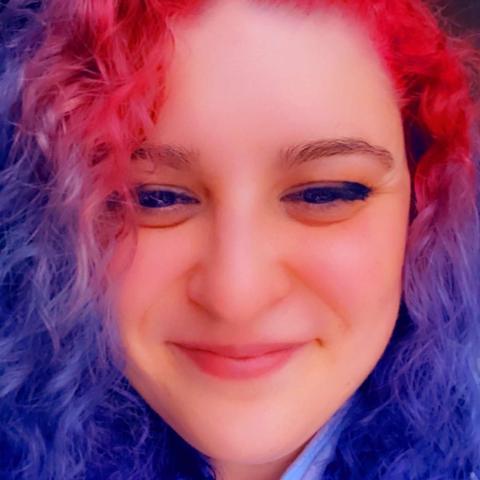Nashville Said Her Gender Was a Liability. Now She's Starting Her Own Label.

Emma White B.M. '10
Image by Cameron Powell
Nashville singer-songwriter Emma White B.M. ‘10 blends pop, country, and R&B, and her music has garnered more than three million streams, along with accolades from Rolling Stone, Buzzfeed, Spotify, and Apple Music. Her latest single, released in May 2019, is “Ten Year Town,” the first release from her new label, Whitehouse Records.
Listen to "Ten Year Town:"
We asked Emma about her experience in the Nashville music industry, the independent female-centric company she's launching, and how she honed her songwriting chops at Berklee where she studied professional music. Below is an abridged version of that conversation.
"Ten Year Town" talks about the difficulty of making it in Nashville's music industry. Tell us about your experience and the inspiration for the song.
"I kept having meetings where my gender was viewed as a risk factor or a detriment. Publishers would say, 'This could be the song,' and then in the next sentence, 'But it’s so much harder with women.' Then I’d have a similar meeting the week after, and so on.
"Gender aside, as an artist, it’s easy to start to play the game. You start to make decisions based not on who you are, but who you think the industry wants you to be: as the song says, the 'dog and pony show.' You start to think: maybe I should say this or befriend that person, and none of it feels genuine.
"Well-meaning industry professionals will give lots of advice as you make your way as an artist or songwriter: advice on what to wear, what color your hair should be, what songs to sing. Artists inevitably get lost. Who wouldn’t, receiving constant critique and feedback? I think getting lost is part of the process of finding yourself.
"Everyone wants to be accepted and included, but I realized that the price you pay for not being yourself is far more costly than the fight and discipline it requires to remain true to yourself. I realized it’s okay if I don’t fit in, if I’m not everyone’s cup of tea. That’s how you find yourself and your audience. So I hope that comes across in the song.
"Ironically, I wasn’t sure I should release the song because it’s so honest, and I didn’t want to offend people. I love this industry and want to find my place in it, large or small."
You're launching Whitehouse Records to help promote and amplify the work of female artists in Nashville. Why is this so important?
"December 2018 was the first time in history that the Billboard Country Airplay chart didn’t feature a single female artist in the Top 20. The more opportunities women have to develop their careers (signing record deals, publishing deals), the more we will see them sitting on the charts. We want to help female artists get their shot.
"I think what makes great art is a person’s truth, regardless of their gender. Their authentic perspective and the stories they share are what matters and what cuts through the noise. I think there is a need right now, more than ever, to champion the female perspective.
"I think we need to show women in different lights, being different types of women, especially in Nashville and in country music. Women are diverse, powerful, fully human beings, and I think showing them in a new way, in their real way, is important.
"Some of my favorite artists are these bold, unique beings, whether they’re comedians, musicians, or actresses. I feel like they’re unicorns, though. There are only a few that cut through. We look up to those women because they’re us too. We see ourselves in them, but they have the luxury of being the full expression of how we all feel. Why not have a lot more of those women in the industry?"
How did your time at Berklee prepare you for success in the industry?
"Before I got to Berklee, songwriting was purely instinct for me. Berklee taught me about craft and discipline in writing. It demystified the craft and showed me how I could work at it and not just rely on a burst of inspiration. I never wanted to cowrite songs before Berklee, and it’s such a big part of Nashville’s music culture that I really had to push myself to do that. It was really uncomfortable at first, but the more you do it, you realize how two or three brains really are better than one.
"I still make time to write alone because I think it’s important to remain acquainted with your own quirky way of doing things. Berklee definitely prepared me to become comfortable with collaborating and working with all kinds of artists, and appreciate music from all over the world."
Anything else you'd like fellow alumni to know?
"If you’re ever in Nashville, let me know! My Berklee friends are still some of my closest friends, and I keep meeting new ones."



